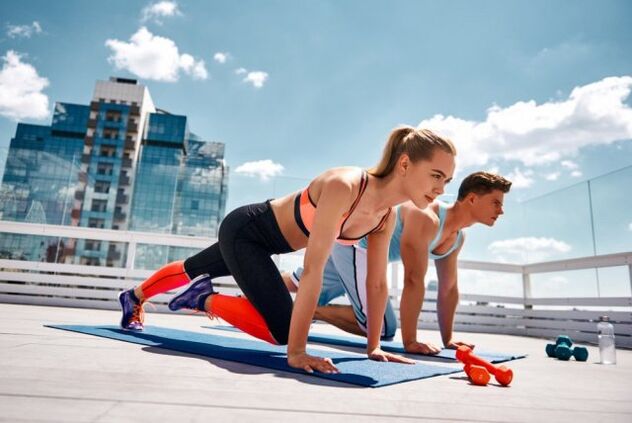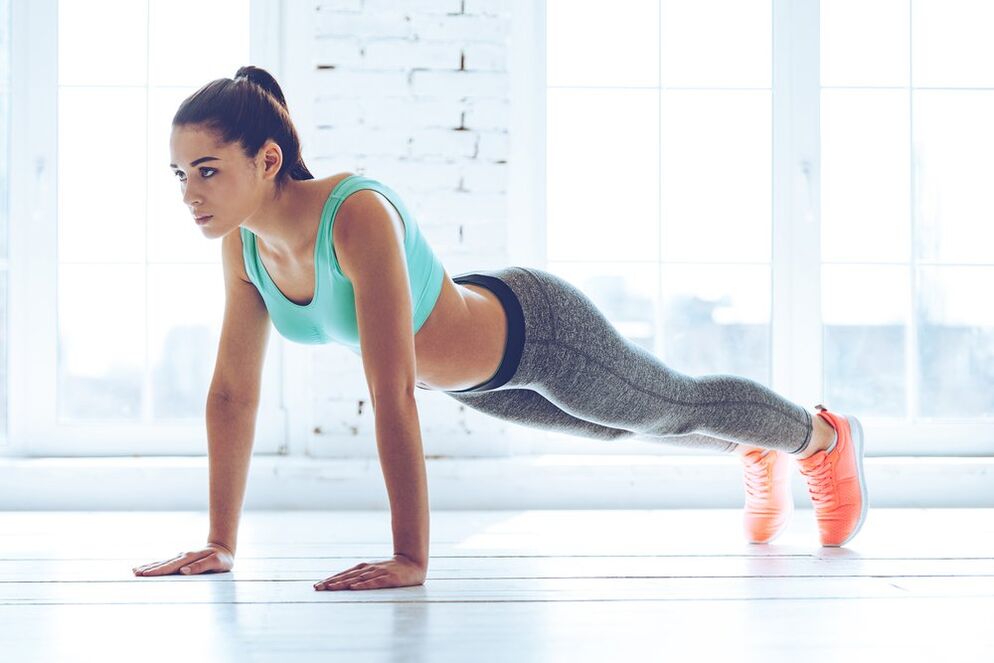
Many people dream of a slim, sculpted figure and a beautiful, toned body. But desire alone is not enough: results do not come to those who do nothing. And arguments about lack of time and money to visit fitness clubs are just excuses. There are many ways to lose weight at home. One of them is daily exercise with exercises for the whole body.
Without additional equipment and expensive equipment, devoting half an hour a day to physical activity, you can not only improve your figure, but also significantly improve your overall physical well-being.
The importance of morning exercise for weight loss
Morning exercises not only help you wake up, cheer up and get rid of sleepiness. It stimulates all vital processes in the body, activates brain function, normalizes blood pressure, increases a person's performance and resistance to stress.
Weight loss is most effective in the morning. In the first half of the day, the body reacts more productively to the load: metabolic processes are activated and fat reserves are burned. Fitness training in the morning alleviates the feeling of hunger and prevents further overeating.
The main rules for morning exercises for weight loss

In order for morning exercises to bring benefits to the body, promote metabolic processes and weight loss, and provide the necessary energy for the whole day, they should be based on the following rules.
- The training complex should contain exercises that involve all the main muscle groups.
- You should start training from top to bottom: from head to toe.
- It is better to increase the load gradually as the physical strength and endurance of the body increases.
- Do not skip physical activity: you should exercise every day.
- The duration of the lessons should be at least 15 minutes a day.
- Rest intervals between exercises should be minimal.
- It is advisable to regularly modify the training program, supplementing it with new exercises and complex modifications of known sports elements.
- It is better to train while listening to your favorite music.
- You should not eat anything an hour or later before the start of classes. Half an hour before training, you are allowed to drink a glass of warm water. This will normalize digestion and help remove waste products from the body.
- A contrast shower after fitness in the morning will double the effectiveness of your workout, increase the body's immune functions and strengthen and tone blood vessels.
- Make sure you follow a proper daily routine. Night sleep should last at least 6 hours.
- The training room must be fully ventilated beforehand.
An effective set of exercises for morning exercises for weight loss
Morning exercises, like any other fitness training, should consist of a warm-up part, a block of basic exercises and end with some stretching elements.
Basic training complex for each day:
- tilting the head forward, backward and sideways;
- circular rotations of the head, shoulders, arms;
- bending to the sides and down towards the legs;
- pelvic rotation;
- jogging in place with high knees;
- bringing the arms with weights to the waist to strengthen the biceps and latissimus dorsi (you can use dumbbells or bottles filled with water or sand as weights);
- push-ups to strengthen the arms, to work the muscle fibers of the back girdle, chest and shoulders;
- body lifts from a lying position, V-shaped bends, straight leg lifts connected together to strengthen the abdominal press;
- squats to work the back and thighs;
- classic forward strokes to get rid of the manifestations of cellulite and form a rounded shape of the gluteal muscles;
- leg swings from a standing position to all fours to strengthen the hips and back;
- all plank-type exercises to strengthen core muscles;
- bending towards the legs from a sitting position to gently stretch the muscles of the back and hips;
- stretching the spine from a standing position next to the wall (with arms raised up, palms crossed).
Each fitness element should be repeated 10-20 times. Choose the pace that is optimal for you to avoid shortness of breath and severe fatigue.
The basic training complex can be supplemented with any suitable physical activity exercise. It all depends on the training goals, problem areas and personal preferences of the performer.
Useful types of fitness

You can diversify your morning exercises with various additional fitness options:
- Hula hoop rotation: helps eliminate excess fatty tissue in the stomach and hips, significantly reduces the size of the waist.
- Jumping rope: effective for strengthening the lower extremities, getting rid of the appearance of cellulite on the thighs and buttocks, increasing body endurance and normalizing the functioning of the cardiovascular system.
- Gymnastics according to the Tabata protocol: allows you to improve your body and improve your general physical well-being in the shortest possible time.
- Breathing exercises: has a beneficial effect on the functioning of organs and vital systems, accelerates metabolic processes and fat burning, increases immunity, normalizes the functioning of the central nervous system, improves the processes of oxygen exchange between cells and tissues.
- Running: helps strengthen the cardiovascular system, improves the mobility of the joint-ligament apparatus, accelerates blood circulation and lymphatic flow.
- Sports or Nordic walking: has a complex overall strengthening effect and a healing effect on the human body.
Morning exercises are beneficial for everyone: men, women, children, the elderly, professional athletes, ordinary fitness enthusiasts and those who do not do sports at all.
It tones muscle fibers, provides a supply of energy and strength, has a beneficial effect on the functioning of organs and vital systems, improves general physical well-being, increases immunity and promotes gradual weight loss.
Daily fitness training in the morning is a healthy habit that will give you energy and good mood for the whole day, start metabolic processes in the body, normalize your well-being and improve mental abilities and performance. This activity is an effective prevention of the development of diseases of the musculoskeletal system, heart and blood vessels.































